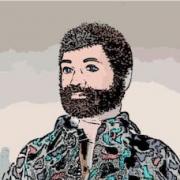Nils did a more deep dive into the scoop on some podcasts. He said he didnít add it until this past year when he noticed he was getting beat on short stages with open paper draws by others that scoop draw. At his level .1 second on a few draws per match is the difference between 1st and 2nd Place at nats.
My biggest takeaway from those interviews is that the scoop draw is a tool but one that is added once youíve mastered alot of other stuff.




 Reply With Quote
Reply With Quote
